The Papuan carriers were critical to the Australians’ success in the Kokoda campaign. Their practical experience on the Track, combined with their invaluable bush skills, physical strength and dedication, enabled the Diggers to create and maintain a human supply line between the frontline deep in the jungle and the base at Port Moresby.
The Australians were lucky to have two Papuan ‘old hands’, Bert Kienzle and Dr Geoffrey Vernon, to organise and maintain the Fuzzy Wuzzy lifeline. Their experience and skill gave the Australians a major advantage over the Japanese, who because of their mistreatment of the PNG nationals found it difficult to sustain a carrier system – the only practical way of moving supplies along the Track. The Japanese were often forced to use their soldiers in this role.
The carriers brought food and ammunition in packs usually weighing around 20 kg or more to the Diggers up the Track. On their return journey they acted as stretcher bearers carrying wounded Diggers back to safety. Because of the extreme terrain, it usually took eight bearers to carry one stretcher. The carriers used their ingenuity to construct the most effective stretcher for the task, as the Medical Officer of the 2/16th Battalion, Dr ‘Blue’ Steward, recalled:
“Some of the bearers disliked the tight, flat canvas surfaces of the regulation army stretchers, off which a man might slide or be tipped. They felt safer with the deeper beds of their own bush-made stretchers – two blankets doubled round two poles cut from the jungle. Each time we watched them hoist the stretchers from the ground to their shoulders for another stint we saw their strong leg, arm and back muscles rippling under their glossy black skins. Manly and dignified, they felt proud of their responsibility to the wounded and rarely faltered. When they laid their charges down for the night they sought level ground on which to build a rough shelter of light poles and leaves. With four men each side of a stretcher, they took it in turns to sleep and to watch, giving each wounded man whatever food, drink or comfort there might be.”
